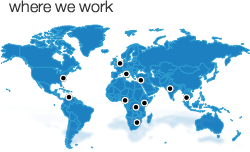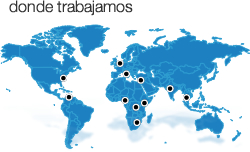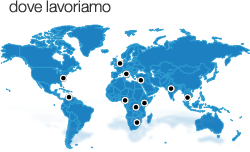
Fundamental to the threefold mission of JRS is addressing the root causes of human displacement. The organisation strives to change unjust policies at the most appropriate level: locally, nationally or internationally.
First and foremost JRS carries out advocacy work on the ground. When the refugees with whom staff are working are denied services, JRS intervenes at the most appropriate level. For instance, when people were displaced after the Mt. Merapi eruption in Indonesia, many were not given material assistance because they chose not to live in displacement camps, but sought shelter from local villagers. JRS Indonesia staff mobilized after the eruption to provide assistance to those the government and other NGOs were not assisting. Where appropriate, JRS works with other organisations raising issues publicly in the media or privately in centres of power, such as Geneva, Rome, Brussels and Washington.
JRS advocacy is qualified by key characteristics. Rooted in field work, it is based on Jesuit values and is relations-centred and research-based. The organisation is currently developing research facilities in cooperation with the Arrupe Tutor in Oxford University and other universities. It seeks to strengthen synergies between field programmes and research and advocacy work. The search for sustainable solutions, addressing the root causes of forced displacement, requires the development of effective structures and efficient advocacy networks based on research analysis.
Advocacy priorities are set at project, national and regional levels. Key issues are also taken up by JRS at international level. These include education, food security, and reconciliation. JRS also often works in coalition with other NGOs, particularly in campaigns against the use of child soldiers, landmines and detention. JRS country and regional offices play an essential role in providing information from the ground which can be used in work with the media and in advocating with national governments and international organisations, such as UN agencies.
JRS has been campaigning against landmines since 1990 and cluster munitions since 2008. JRS was one of the founding organizations of the Thailand Campaign to Band Landmines and a member of the International Campaign to Ban Landmines. In 1997 this campaign won the Nobel Peace Prize and Tun Channareth with other JRS advocates to ban landmines accepted the award.
JRS has played a leading role in the campaign and contributed research on Cambodia, Thailand, and Indonesia for the 'Landmine Monitor'. In addition JRS continues to support landmine survivors in countries such as Bosnia, Cambodia, Thailand, and Kosovo, and actively raises awareness of the issue in these and other landmine-affected countries.







